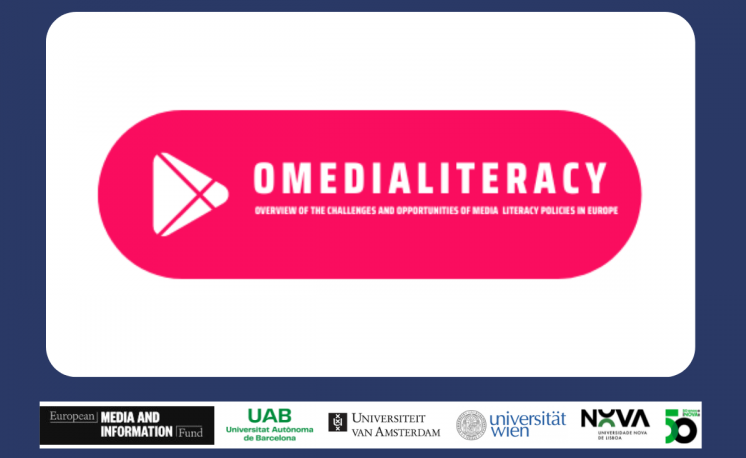The project “OMEDIALITERACY. Overview of the challenges and opportunities of media literacy policies in Europe” is a descriptive and explanatory research project that addresses one of today’s major societal challenges: misinformation. It is funded by the European Media and Information Found (EMIF). This research aims to identify existing knowledge on misinformation’s effects in Europe, compare current policies on media literacy and misinformation in member countries, and identify good practices to overcome misinformation. To this end, a review of the scientific literature will be carried out, as well as a literature review of disinformation policy documentation in Europe, comparing disinformation policies and identifying good practices. All the information found will be published in a report with recommendations for policy and practice.
On this basis, in addition to the main objective, the project pursues the following specific objectives:
1) to identify scientific literature on the proliferation and effects of disinformation, as well as on ways to counteract it;
2) to learn about actions, methodological approaches and policies on disinformation in member countries and identify good practices currently being implemented in Europe;
3) to produce a literature review report on the current gaps in the literature on disinformation in Europe;
4) to identify the current state of the art on disinformation in Europe and identify good practices in the field of disinformation;
5) to monitor, exploit and communicate the results and outputs of the project to the scientific community, policy makers, stakeholders and end-users in order to maximise the impact of the project.
The project, which is led by the Gabinete de Comunicación y Educación of Universitat Autònoma de Barcelona has the participation of the University of Vienna (Austria), the University of Amsterdam (The Netherlands) and the Nova University of Lisbon (Portugal).

